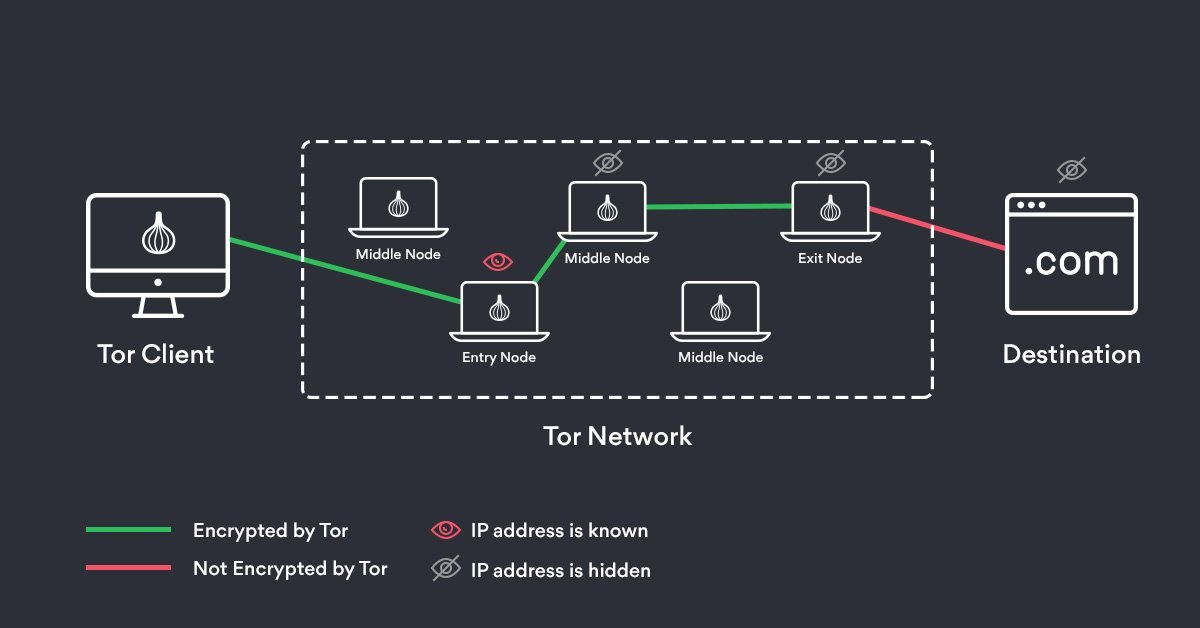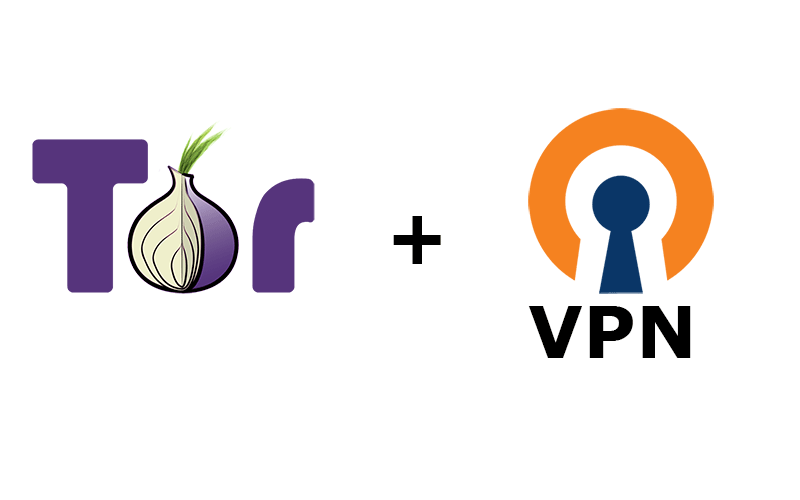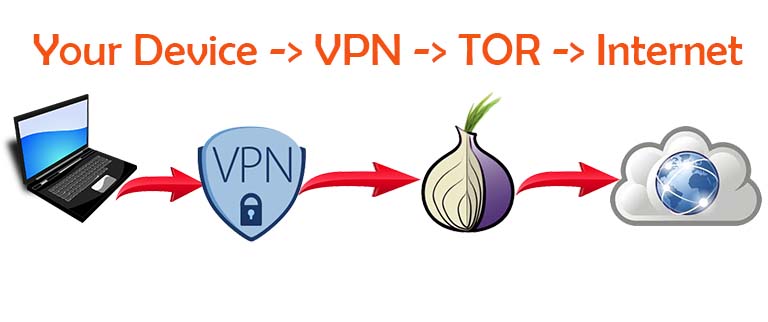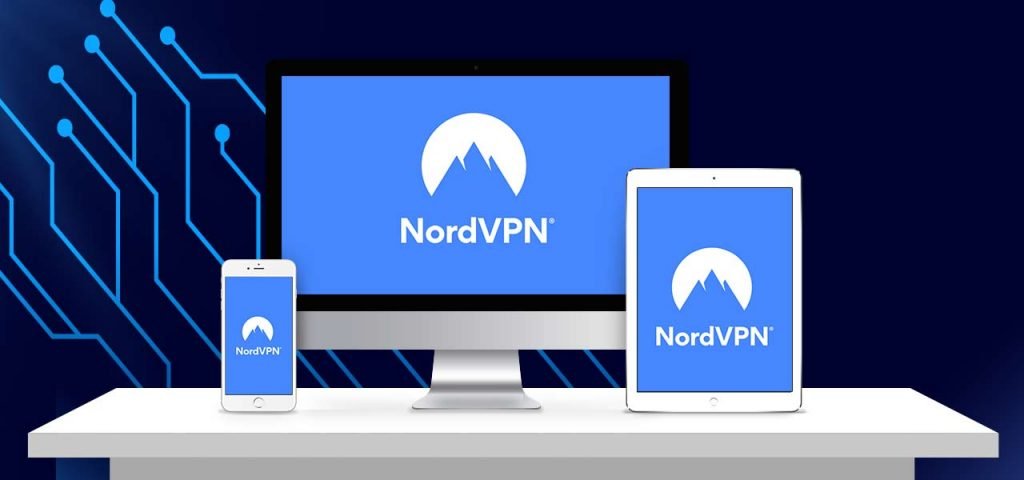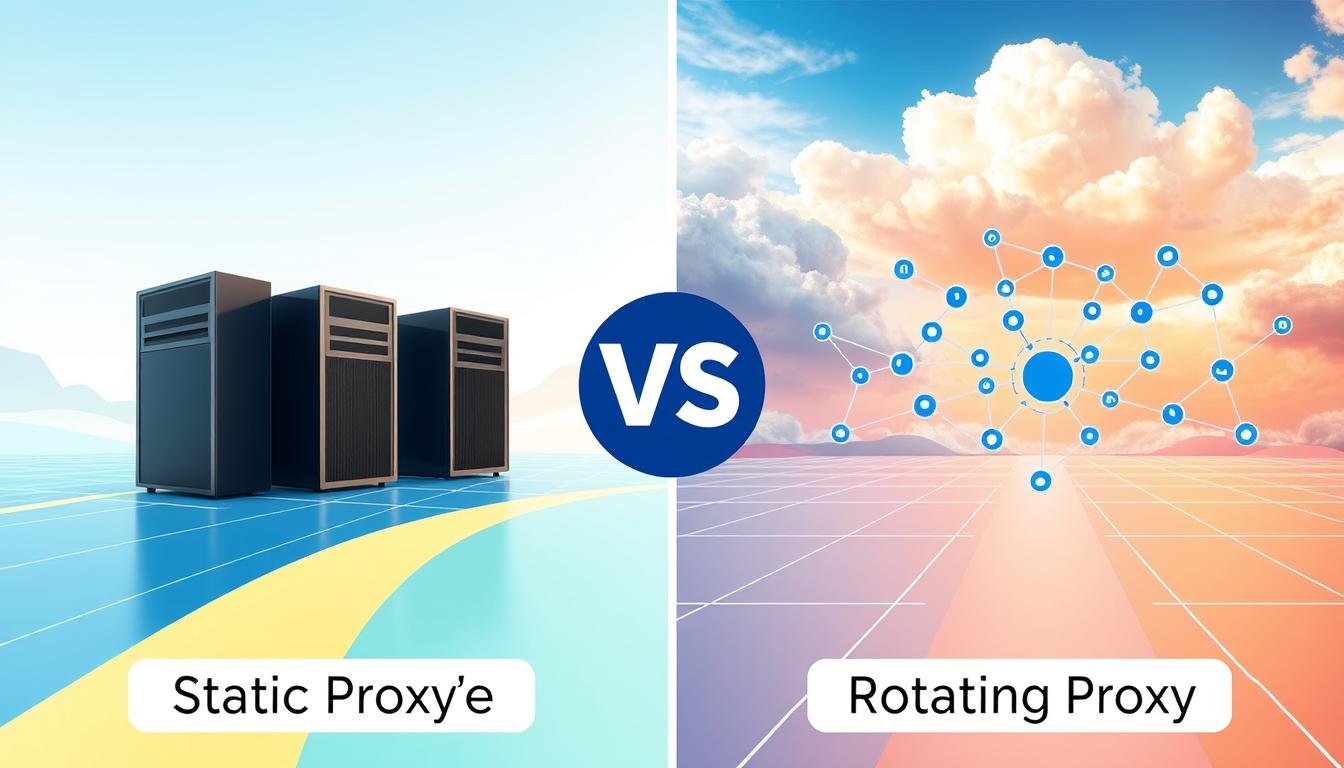FTC disclaimer: This post contains affiliate links and I will be compensated if you make a purchase after clicking on my link.
If you are serious about anonymity and security, then you would have heard about VPN and Tor Browser.
Both Tor and VPN increase the level of anonymity and security by using a combination of proxy and encryption methods.
The main difference between the two is that Tor is known for its anonymity and VPN for security.
But, there is a lot of confusion, is it right to use Tor with VPN and how VPN is different from Tor Browser.
What is Tor Browser?
Tor Browser is free and open-source software that routes your traffic through the Tor network, which helps you to stay anonymous online.
The word “Tor” comes from the “Onion Router,” and when multiple proxy servers randomly get interconnected, then it is known as Tor network, it is also called “Tor Circuit.”
Each Tor Circuit consists of three nodes – Entry node, Intermediary node, and Exit node. The Entry node, also known as Guard node, remain unchanged for 2-3 month but the remaining two nodes changes with the domain name.
The tor circuit or tor network would be different for different websites, but it will remain the same for different pages of the same site.
So, whenever you request any website to web server, then your request gets channelized through the Tor network, and your data gets wrapped in multiple layers of encryption like an onion.
Is Tor Browser a VPN?
No, Tor Browser is not a VPN, but both the tools protect your privacy online. Also, both the tools are based on different technology which protects you differently.
VPN route your traffic through a remote server and provide end-to-end encryption. In the case of a VPN, when web clients like browser request a website, then it first gets connected to a remote VPN server.
The remote VPN server, on your behalf, forwards your request to the webserver. The web server then replies to your requested data, which is directed toward the remote VPN server. The VPN server, finally, forward it to a web client.
Tor browser routes your traffic through a volunteer-operated network called Tor network. And, the Tor network is formed by combining proxy servers, operated by a volunteer, called as nodes or relays.
The traffic starts from Entry node or Guard node, where it get encrypted and passes to another relay.
When it reaches the final relay, also known as an exit node, then encryption was removed and send it to the webserver.
Each Tor network is randomly generated, and none of these relays keep any records. So, it is impossible to trace any activity in the complex Tor network.
The Tor Network changes with the different domain names, and if you would like to change the current Tor Network of any site, you can do so.
Is the Tor browser safe without VPN?
Tor Browser is very useful in providing anonymity and privacy online. It is impossible to trace your online activity through the Tor network.
However, the Tor Browser is not entirely safe. Your data is secure and encrypted until the exit node. After the exit node, the encryption is removed, which will become vulnerable for an unsecured HTTP website.
Also, if you have added plugins to the browser, other than default plugins and scripts, then your anonymity may get compromised, and it may leak your real IP address.
What are the disadvantages of using Tor Browser without a VPN?
The most significant disadvantage of using Tor Browser is speed. The browsing speed is slow because it has to travel multiple nodes or relays before it reaches to destination.
Tor Browser is also not suitable for streaming or downloading. Even the developer of the Tor Browser discourages torrent download.
But, if you still want to use Tor Browser for torrenting, then it will take time to load and download. Further, the torrent traffic may expose your real IP address.
So, If you are looking for video streaming or torrenting, then VPN would be the best option.
Moreover, another drawback of using Tor Browser is that the ISP can track, that you are using Tor Browser. But they can’t predict what you are doing. Although, using Tor Browser on itself raise suspicion about what you are doing.
Combine VPN and Tor to get Best Security
There is no doubt that Tor Browser provides excellent privacy and security to users. But, still, you can’t prevent the surveillance of government agencies and hackers.
Also, when you are using the Tor Browser, the ISP can know that the traffic originates from the Tor Browser.
But, when using a VPN with the Tor browser, ISP cannot identify that you are using Tor Browser.
Additionally, it will be impossible for government agencies like NASA, FBI to track and investigate your online activity.
How to use Tor Browser with VPN?
When we combine the Tor Browser with VPN, then we can maximize privacy and security to traffic.
You can use Tor Browser with VPN in two ways:
- Tor over VPN
- VPN over Tor
Tor over VPN
Tor over VPN is merely using VPN first and then use Tor Browser to connect to the internet. It will provide you with complete safety and end-to-end encryption from both VPN and Tor Browser.
The traffic flow will look as below:
Your Device => Data Encryption by both Tor and VPN => First get connected to VPN server => Travel through Tor Network => Web Server
If you are looking for a compatible VPN, which has inbuild Tor service, then NordVPN is the best example. The NordVPN service is known as Onion over VPN, which allows you to connect to the Tor network without Tor Browser.
NordVPN firstly routes your traffic through one of its secure VPN servers and then directs the traffic to the Tor network.
Also, here, NordVPN not only protects your online activity but also protects all traffic that originates from your device.
The advantage of using Tor over VPN are:
Before entering to Tor network, VPN encrypts the traffic and forwards the traffic on behalf of the web client. It means that the volunteer-operated Tor network cannot have access to a real IP address.
Tor over VPN also protects you from ISP to know that you are using Tor Browser. VPN will hide all your online activity from ISP.
Tor over VPN also protects your privacy from VPN providers because they cannot see what you are doing in the Tor network.
The downside of using Tor over VPN are:
Some web servers may block traffic leaving from Tor exit nodes.
If VPN keeps a log of your online activity, then it may be possible to leak your real IP address.
The excellent way to avoid any downside of using Tor over VPN is to use NordVPN because it has a strict no-log policy.
VPN over Tor
VPN over Tor method first connects to the Tor network then it gets to connect to the VPN server. This method is challenging to set up and required configuration from a VPN provider.
The traffic flow will be as below:
Your Device => Data Encrypted by VPN and Tor => Tor Network => VPN server => Web server
A good VPN like NordVPN and Express VPN manually configure your browser to work with a VPN.
The main advantages of using a VPN over Tor are:
VPN over Tor will protect your traffic from the exit node of the Tor network to the webserver. The leaving traffic from the exit node gets routed to the VPN server, and that’s how it protects you from getting blocked.
More importantly, the sensitive information leaving the Exit node of the Tor network will get protected from hackers and government agencies.
VPN over Tor also protects your real IP address from a VPN provider. But, if you are using transparent VPN providers like NordVPN and ExpressVPN, then this won’t be the problem.
The downsides of using VPN over Tor are:
ISP and government agencies will still know that you are using Tor, but they cannot snoop on your online activity.
Your online activity is protected till the time you are using Tor Browser. But, any traffic outside the Tor network is unsafe, such as P2P file sharing, streaming videos, etc.
Best VPN for Tor
NordVPN
NordVPN is the best VPN for Tor because its specialized server has pre-configured with Tor over VPN.
It means that first, the traffic will pass through the NordVPN server then it will get redirected to the Tor network. This type of configuration secures all your traffic that originated from the device.
The NordVPN also comes with a double-VPN option, which would be useful to give an extra layer of security. In such a case, the VPN will use two remote servers instead of one and the Tor network.
But, the downside of using a double-VPN option is that you may face sometime slow speed.
The NordVPn also comes with a strict no-log policy and 256-bit AES end-to-end encryption.
You can get up to 70% off with the NordVPN subscription from here.
Express VPN
Express VPN is another one of the best VPNs that have launched .onion site for Tor users, who want to create an account with ExpressVPN anonymously.
This way, Tor users can access any websites in high-censorship countries and also protect their privacy and anonymity at a higher level.
ExpressVPN also comes with a strict no-log policy and provides by default 256-bit AES encryption.
ExpressVPN supports almost all devices and is very user-friendly and has a fast VPN.
You get a special discount on Express VPN from here.
SurfShark
SurfShark is the most affordable VPN without compromising security and privacy. It has more than 1000+ servers in more than 60 countries.
SurfShark also has the no-log policy and protect your traffic from 256-bit AES encryption. It comes with Kill Switch functionality and protects against IPv6, DNS, and WebRTC leaks.
It has some advance feature like multi-hop servers which protects your anonymity in higher level and split tunneling feature that speeds up apps.
You can get SurfShark with the lowest price guarantee from here.
The Bottom Line
Tor Browser is both a powerful and useful tool to protect your privacy online. But, when you combine Tor with a VPN, then you can take the benefits of both worlds like anonymity, privacy, and security.
If you are using Tor Browser, we strongly recommend you to use VPN.
Also, VPN by itself provides excellent security and privacy to your entire device without compromising speed and anonymity.
